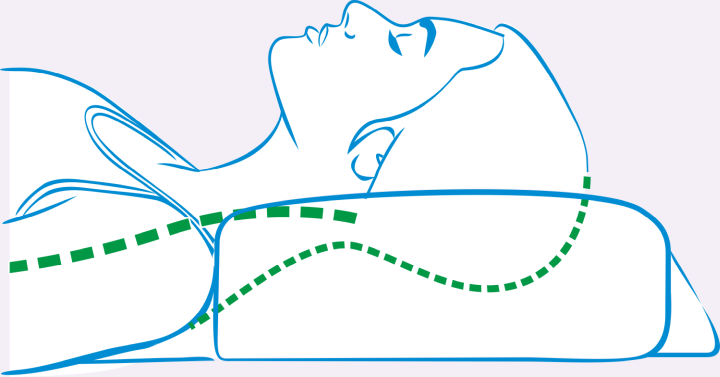To provide services at the highest level, we use cookies. Using the website requires you to choose settings related to their storage on your device. If you want to know what each type of cookie is used for, click the Details button below.
Sleeping pillow and daytime performance25 września 2023 |

We all know that healthy and comfortable sleep plays an incredibly important role in our daily lives. Therefore, choosing the right sleeping pillow is crucial for our health and well-being. A properly chosen sleeping pillow not only provides incredible comfort but also affects the quality of sleep and, consequently, a person's productivity during the day. So, what should we consider when making our choice?
Firstly, it's worth knowing that feathers and other natural components, although they may seem luxuriously soft, often conceal potential pitfalls. They can be allergenic and challenging to maintain in proper hygiene. To avoid problems with allergies and maintain the hygiene of your pillow, it's worth considering other options.
For similar reasons, special caution should be exercised when it comes to buckwheat pillows, as this popular alternative to pillows can create ideal conditions for the development of mold, mildew, bacteria, and allergens. Therefore, it's advisable to choose pillows that not only provide us with complete comfort but also health.
Fibers made from bamboo viscose used in pillows, although offering a certain level of comfort, can lose their original shape over time. Therefore, an alternative choice is often pillows made from high-quality polyester fibers. Thanks to them, we can avoid the very annoying problem of filling clumping, which is characteristic of cheap polyester options.
It's worth paying attention to innovative solutions in the field of pillows. Here, an option is lyocell, also known as Tencel. It is a durable and hypoallergenic material that feels deceptively like noble silk to the touch. This is a good choice for those who value health and comfort during sleep.
Of course, if the priority is support for the spine, it's worth considering anatomical and custom-fit orthopedic pillows. Those filled with high-elasticity foam can provide the proper support for the spine and head, improving sleep quality and, consequently, affecting the user's productivity during the day.
The best pillow for sleeping depends on body structure as well as individual preferences, discomforts, and needs. Choosing the right pillow depends on body type, sleep position, and any potential health issues. It's worth considering anatomical orthopedic pillows, which offer proper support for the spine, especially those filled with high-density open-cell foam that provides comfort and support.
Orthopedic pillows, such as those offered by the brand ONSEN?, are suitable for people with back pain. They can help alleviate pain and stiffness by conforming to the natural curvature of the spine and keeping it in the correct position during sleep. These are the pillows that work best for back pain.
A sleeping pillow should be made from materials that suit the user's individual needs. Suitable materials may include high-density foam, HR foam, bamboo viscose, or hypoallergenic materials like lyocell. The choice of materials depends on preferences, comfort, and any health issues.
The price of a good sleeping pillow can vary and depends on many factors such as brand, filling type, size, and material quality. Pillows are available in a wide price range, starting from cheaper options to more luxurious ones. It's important to find a pillow that meets your needs and fits within your budget. Orthopedic pillows molded from high-density foam in molds can cost over 300 Polish zlotys.
Pillows with natural fillings, such as feathers, can be problematic for people with allergies. Natural materials may contain allergens that can trigger allergic reactions in allergy sufferers. Their porous structure provides an excellent environment for the growth of mold, fungi, and bacteria. That's why people with allergies often choose pillows made from hypoallergenic materials like lyocell (Tencel) or polyester fibers, which are less allergenic and easier to maintain hygiene-wise.